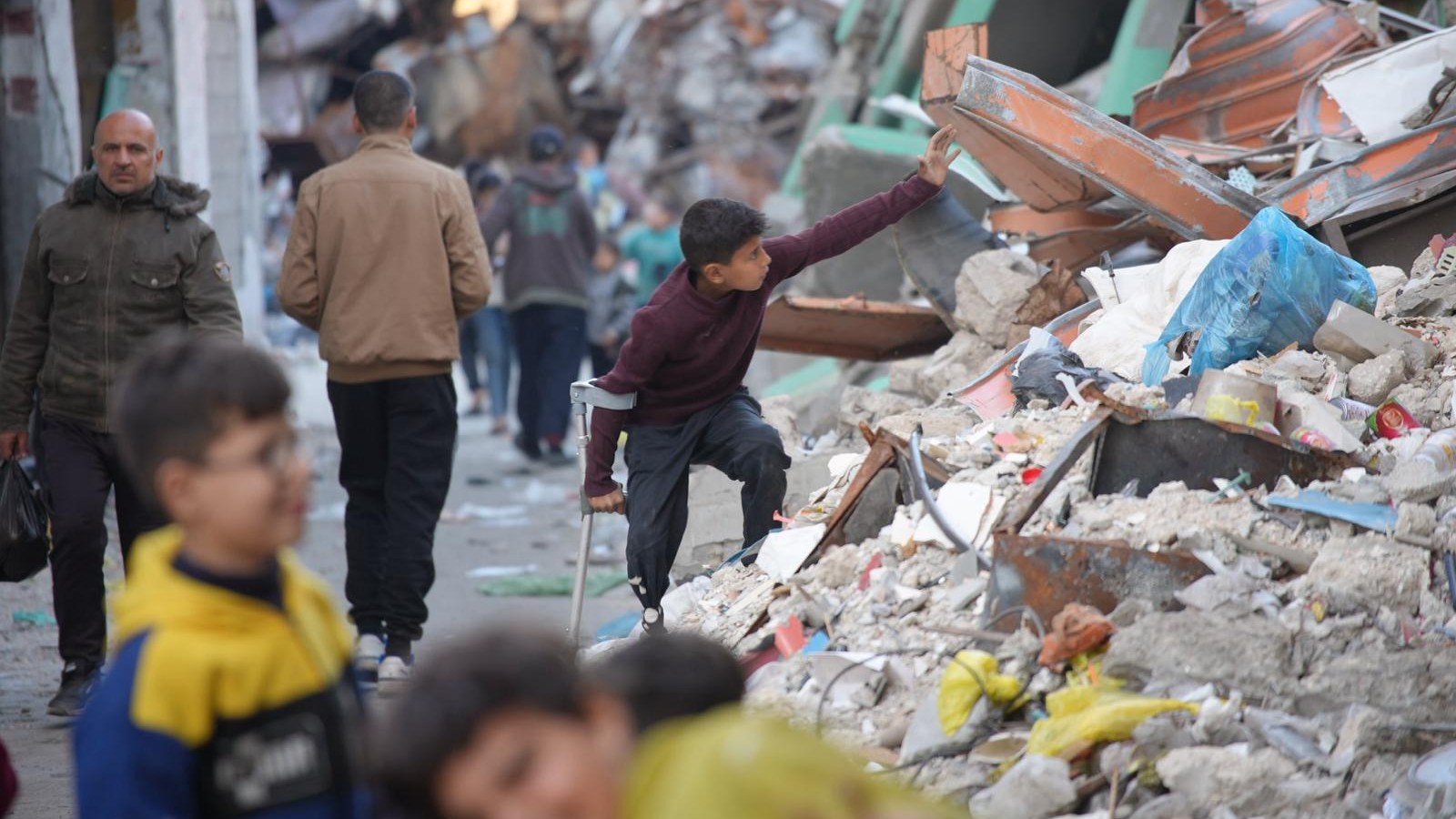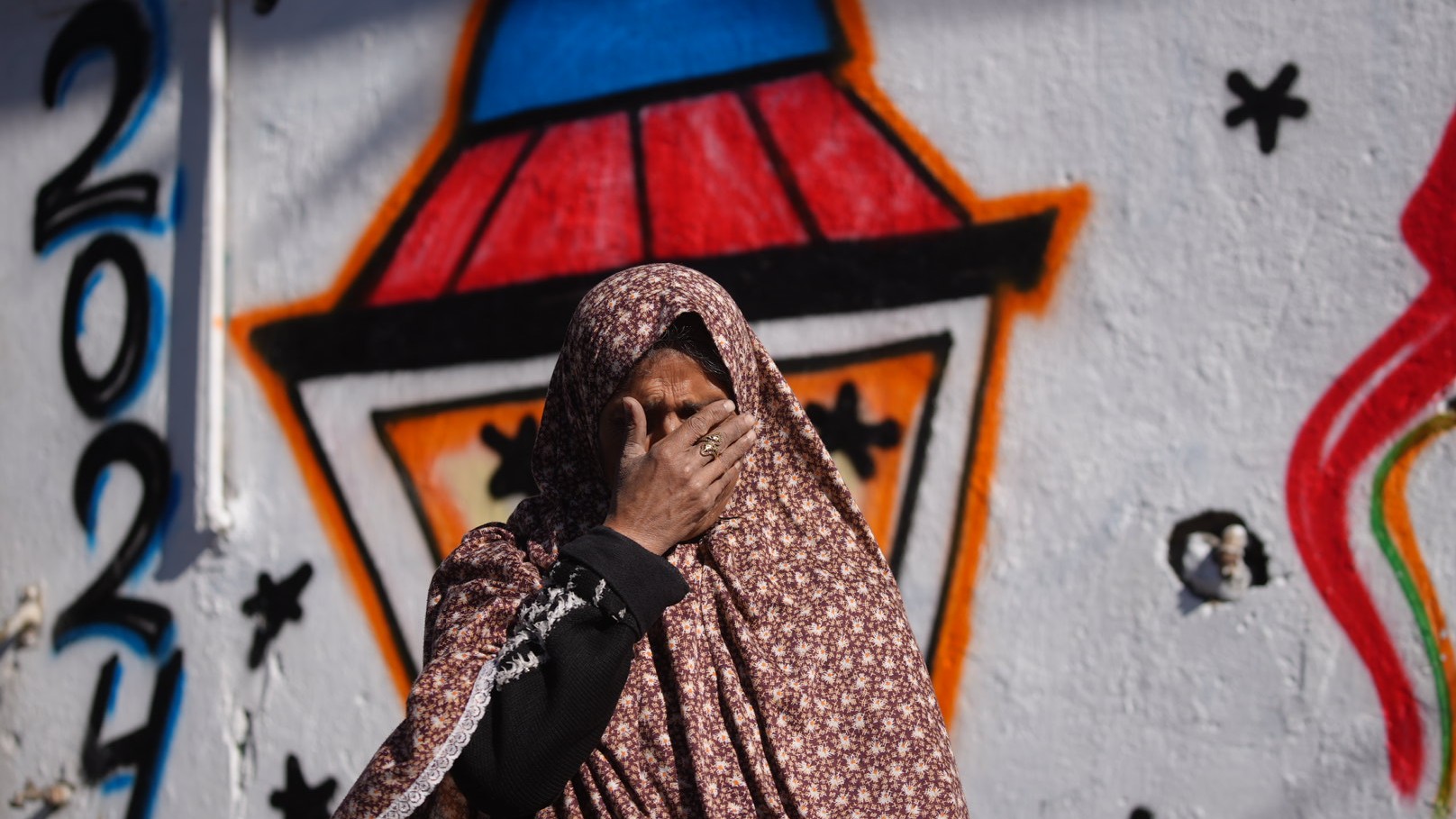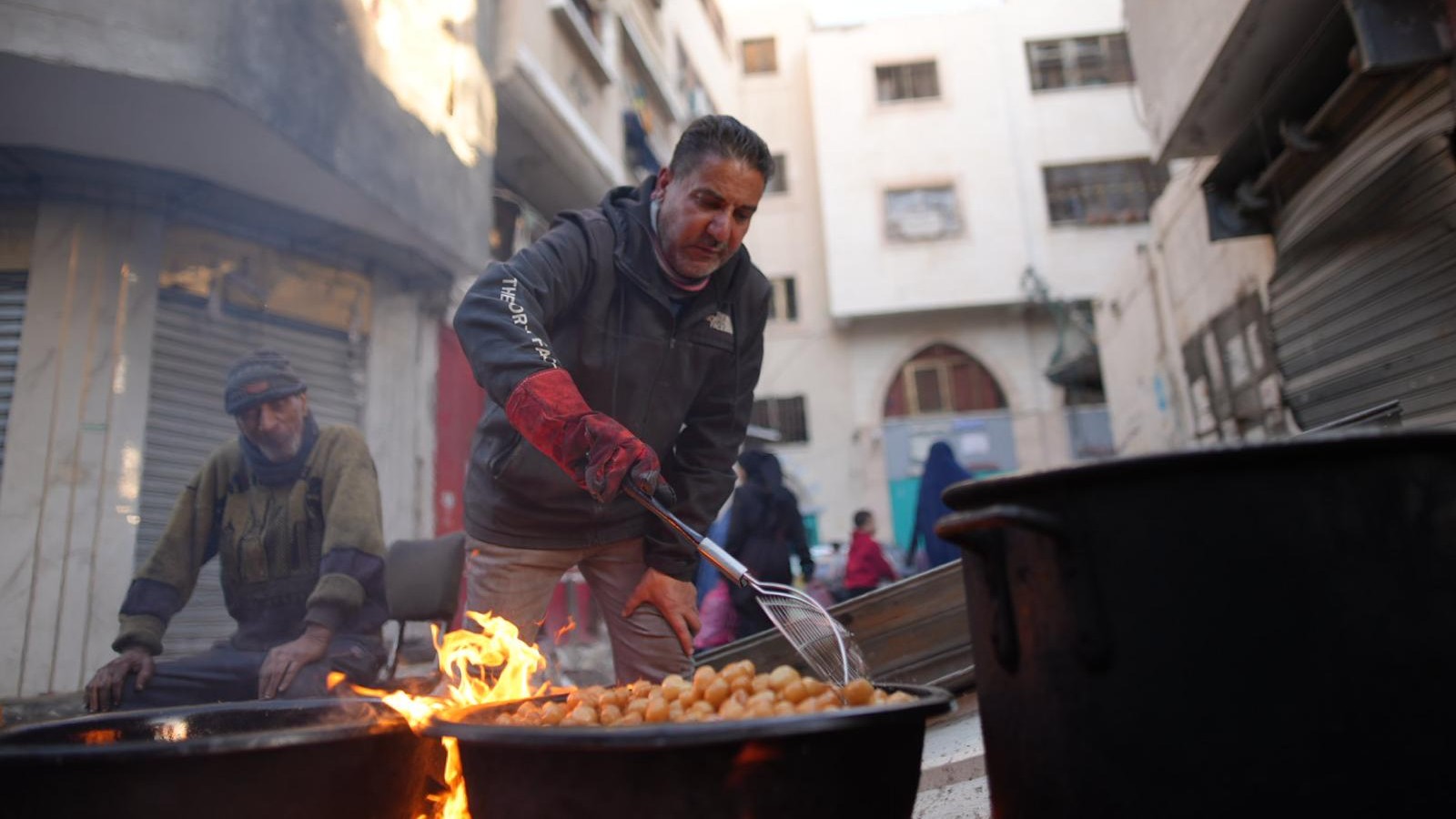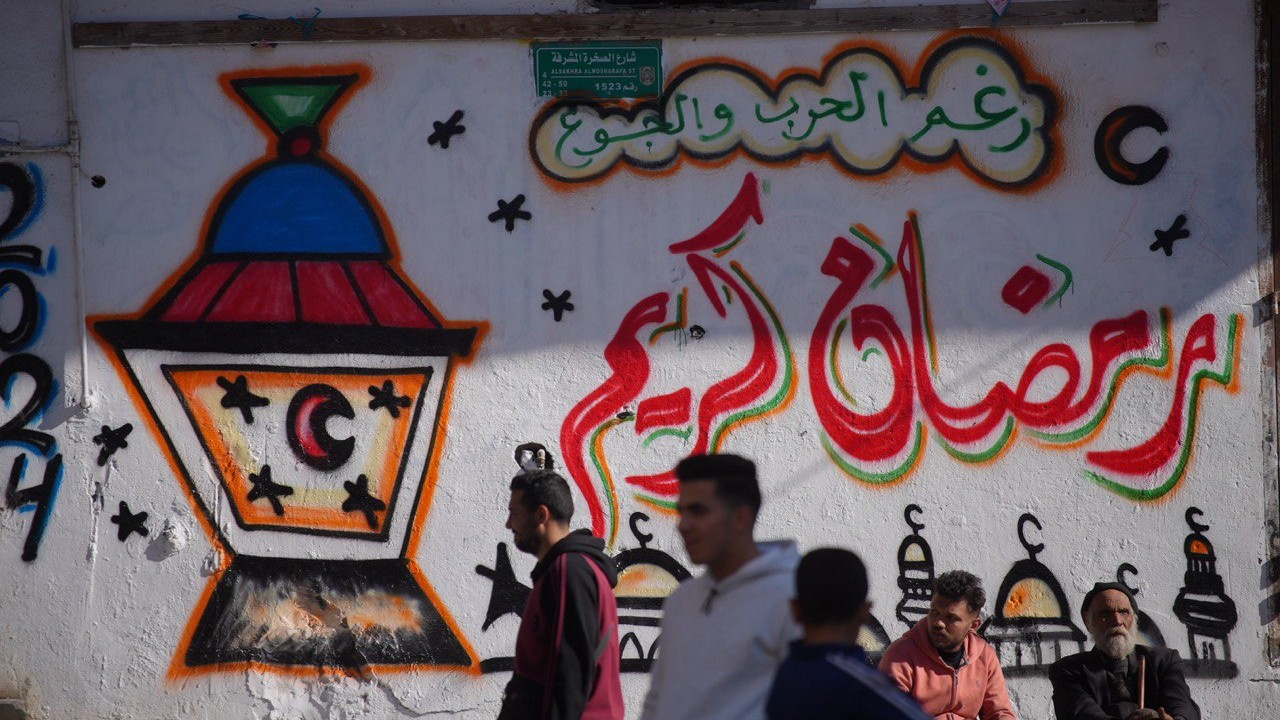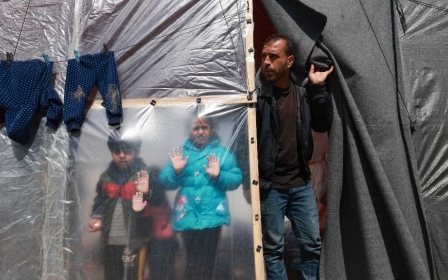War in Gaza: Starving Palestinians prepare for Ramadan amidst death and destruction
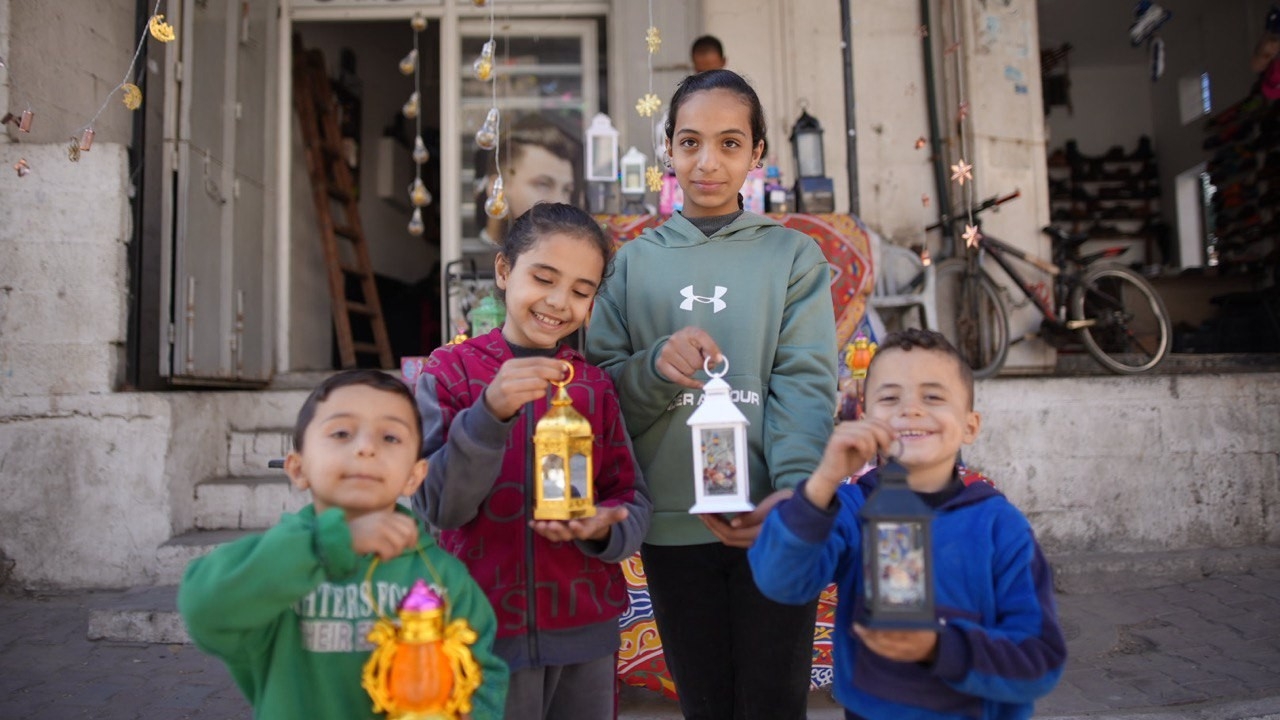
When the holy month of Ramadan rolled around every year, Diab al-Zaza, 77, and his family would typically decorate the streets of his neighbourhood.
He and his 10 children would walk around near their home and distribute traditional lanterns and sweets to their neighbours.
The holy month is usually keenly anticipated in Gaza, as it offers Muslims time to reflect and engage in acts of worship as well as spend more time with their family and loved ones.
This year, however, Ramadan, which is set to start on Monday, has filled many people with anxiety, after over five months of war in the besieged enclave.
More than 30,900 Palestinians have been killed in Gaza since the start of the war on 7 October, while 70,000 have been wounded. The UN announced on Saturday that 80 percent of Gaza is now uninhabitable, while the hunger rate stands at 100 percent.
New MEE newsletter: Jerusalem Dispatch
Sign up to get the latest insights and analysis on Israel-Palestine, alongside Turkey Unpacked and other MEE newsletters
"I have been through many hardships, but in all my life I have never lived more difficult days than these because of hunger, thirst, loss and separation," Zaza told Middle East Eye.
Zaza was separated from his family due to Israeli bombing. His wife had refused to relocate to the south with their sons and daughters, leaving him unable to see his 10 children and 50 grandchildren.
'Ramadan this year will be sad because the war has not left us anything'
- Diab al-Zaza, Gaza resident
“We are now living in conditions worse than the Nakba," he said, referring to the period when Palestinians were killed or driven from their homes when the state of Israel came into existence. "At the time of the Nakba there were fewer people and the country was open, but now we are besieged from all sides," he said.
This year, Zaza said, he won't be putting up any Ramadan decorations, as too many people, including his friends, relatives and neighbours, have been killed, and his family remains displaced.
"Ramadan this year will be sad because the war has not left us anything. They [Israeli army] destroyed the mosques, they even destroyed the Al-Omari Mosque, which was more than 1,400 years old. There is no place for us to pray Tarawih now,” he added, referring to voluntary night prayers performed during Ramadan.
For Zaza, the usual sounds of joy during this time of year have been replaced with tears.
Ramadan under siege and widespread starvation
The UN and several aid agencies have repeatedly warned that Gaza is on the brink of famine, calling for Israel to allow in aid immediately.
At least 25 people have died from malnutrition and dehydration since the start of the war, including a 10-year-old child with cerebral palsy.
The widespread hunger has left many Palestinians with a sense of anxiety over the holy month, during which Muslim are typically expected to fast from food and water from dawn to sunset.
Those who are malnourished, and women who are menstruating, pregnant or breastfeeding are exempt from fasting, as are those who are ill or travelling, the people of Gaza have already been weakened by months of siege and bombardment.
"We have been fasting almost against our will for three months due to hunger because there isn't any food available to eat," Zaza said. "I have lost 12kg since the beginning of the war. I have become dizzy many times while walking with my wife."
In such circumstances, he was unsure if he will be able to fast this year. He has also previously suffered a stroke, while his wife is diabetic and has been forced to divide her normal insulin shot into three doses due to the scarcity of medication.
'We love life and deserve to live'
Israel cut off all fuel, food, water, aid and electricity in Gaza on 9 October, gradually forcing the medical sector and hospitals there to completely collapse. Bakeries, supermarkets and pharmacies have been bombed, forcing people to find scraps of food in order to survive.
Khalil Atallah, a 42-year-old father of six, would always decorate Yarmouk Street before Ramadan. Now, he said, he hopes for a ceasefire to offer a respite from the death and destruction.
"I'm accustomed every year to seeing markets open before Ramadan, and seeing the most beautiful lanterns, decorations and painted neighbourhoods. There are certain traditions, customs and religious rituals that spread joy in everyone's hearts, but this year the Tal al-Hawa neighbourhood has been destroyed," he told Middle East Eye.
Atallah and his family have been displaced several times since the start of the war, and now, he said, they are living in a "war of hunger".
"Every day, every home is bleak. I have lost over 50 family members in the bombing. This Ramadan will be different to every other one because of the oppression," he said.
Despite the difficult circumstances, Atallah has decided to decorate Yarmouk Street, where he is staying, "to prove to people that we love life and we have an unbreakable will and that we deserve to live".
"But as much as we create a nice atmosphere, and try to decorate, within us there is a deep feeling of pain and sadness. There is not a house in Gaza where a family member has not been killed or imprisoned," he added. He said he hoped there will be a ceasefire soon.
Forced to work to survive during Ramadan
For many in Gaza, the holy month, usually reserved for increased hours of worship and good deeds, will be spent working long hours to make money in order to buy food. Since the start of the war, the scarcity in food has forced prices of basic goods to soar.
Fatima Madoukh, 38, a mother of six children, says that she doesn't feel ready for Ramadan.
'Although it is a month of blessings, me and my family are all hungry. I never used to work before the war, but now all my children and I work'
- Fatima Madouk, mother of six
"Although it is a month of goodness and blessings, I and my family are all hungry. I never used to work before the war, but now, all my children and I work because of this situation," she said.
Madoukh has been forced to mix flour with barley, wheat, corn and bird feed or whatever else she can get her hands on to feed her children, one of whom has heart problems.
"My husband is sick and cannot work. I work every day from four in the morning until five in the evening so that I can provide anything for my family. We eat only once," she said. Often she can't sleep due to hunger pangs.
Abu Fayek Daban, a 50-year-old sweet-maker, said his job has been robbed of any joy.
"There is no joyful spirit," he said. "Everything is difficult to procure, most of the sweets I make depend on flour, semolina, sugar, nuts, rose water, cooking gas, and all of these things today are difficult to obtain or are available only at very high prices."
According to Daban, a bag of flour, before the war, cost 30 shekels ($8), while now, it costs more than 1,000 shekels.
For Daban, Ramadan was the time of year when he made the highest sales, as people sought him for treats after enjoying their iftar meal in the evening. As the war shows no sign of abating, he worries how he will continue to maintain his livelihood.
Daban said that at the moment, many come to him for the awama sweet, which can be eaten at breakfast, lunch or dinner, because it is filling.
"From 7am when I first open, many people come to me and wait for me to make any kind of sweets, so that they can buy small amounts to satisfy their hunger. A kilo of awama used to cost 12 shekels. I am selling it now for 40 shekels because the price of flour is very high."
He said he will bring the prices down as soon as he can.
Around Gaza, people have been hanging on to the hope of a ceasefire before the start of Ramadan, even as that hope looks increasingly precarious.
"We do not deserve all of this suffering we are facing. We are peaceful, and we want to live in tranquillity,” Daban said, urging the world to take notice of Palestinian suffering.
Praying in destroyed homes
Around parts of northern Gaza, families have spray-painted the walls of homes that remain partially standing with Ramadan wishes.
In other areas, children stand behind a make-shift stall selling Ramadan lanterns, hoping to spread some joymwhile at the same time making some money.
Samar Atallah, a child from north Gaza, said she wants to spend Ramadan like the rest of Muslims around the world.
"Every mosque is destroyed in Gaza, and in every house there is someone who has been killed or wounded. How are we supposed to live? We are just trying to compensate for the loss by spreading a tiny bit of joy," she told Middle East Eye.
"I want to cry from everything that's happened. It's tiring, everything is destroyed. Before the war we would hear the athaan [call to prayer] from mosques. Now we there is nothing.
"We will still pray in our destroyed homes, but we wanted to pray the beautiful taraweeh prayers in the mosques."
Metres from where she is standing, a message written in Arabic on the wall reads: "Despite the war and hunger, have a blessed Ramadan."
This article is available in French on Middle East Eye French edition.
Middle East Eye delivers independent and unrivalled coverage and analysis of the Middle East, North Africa and beyond. To learn more about republishing this content and the associated fees, please fill out this form. More about MEE can be found here.


